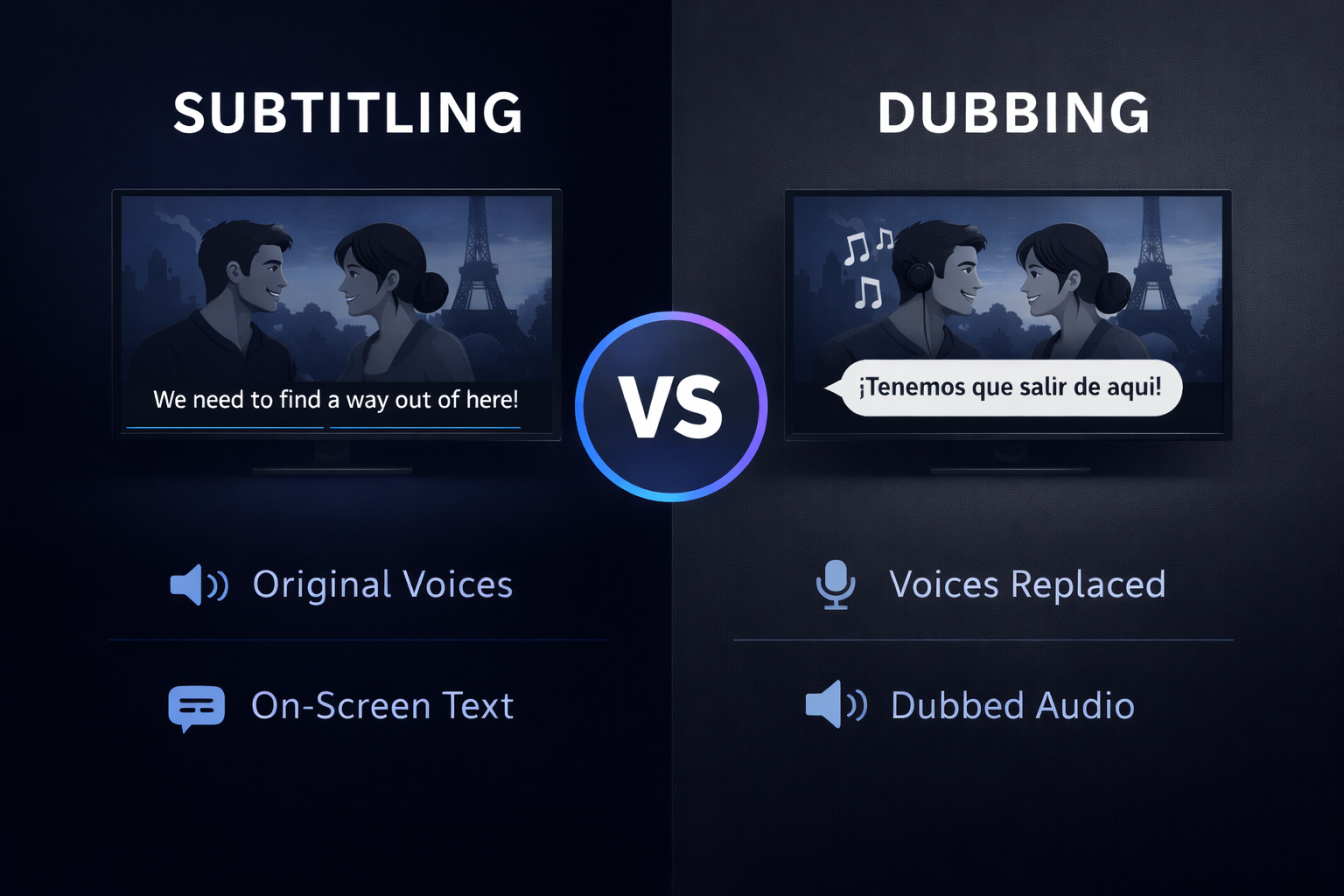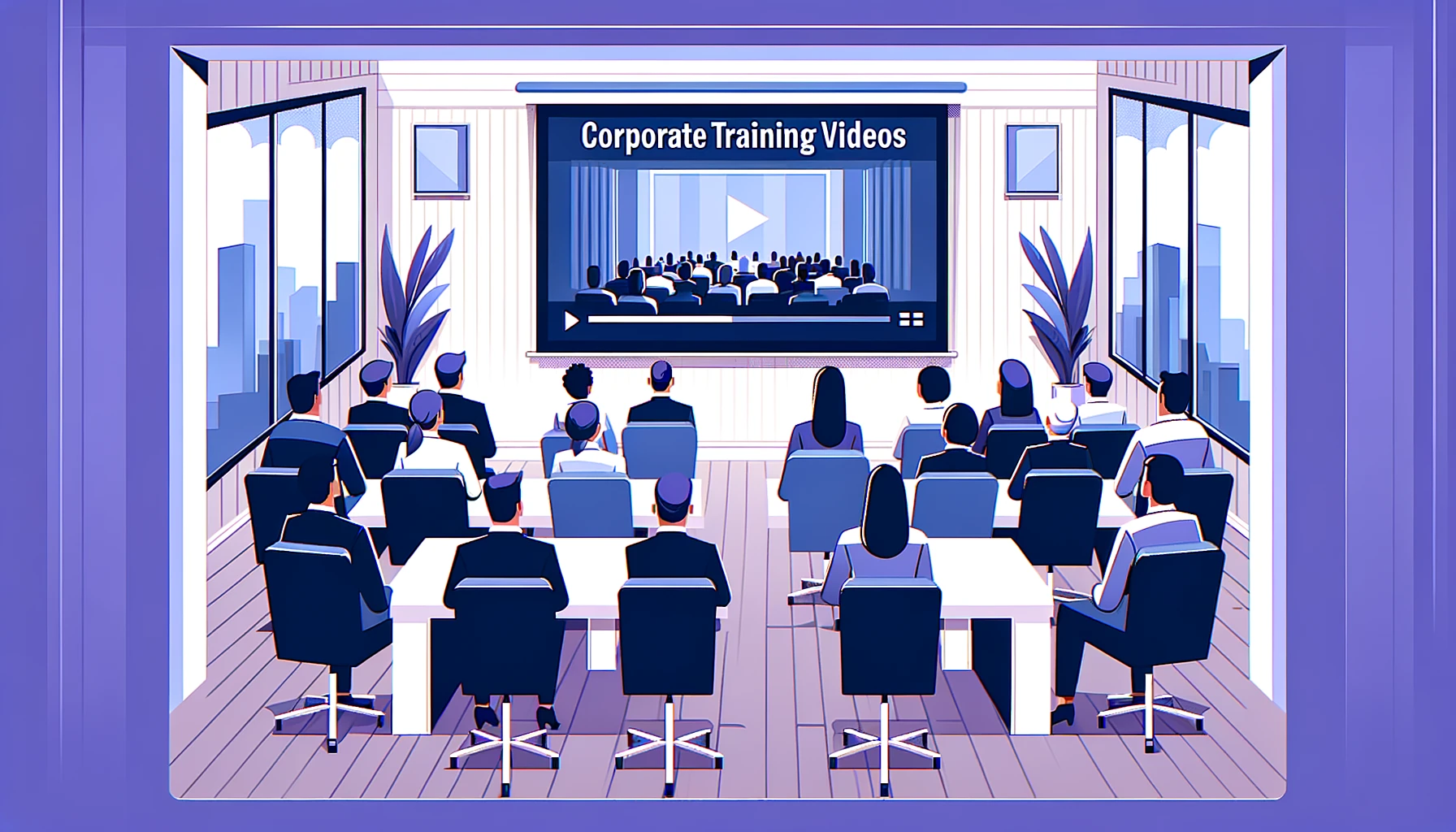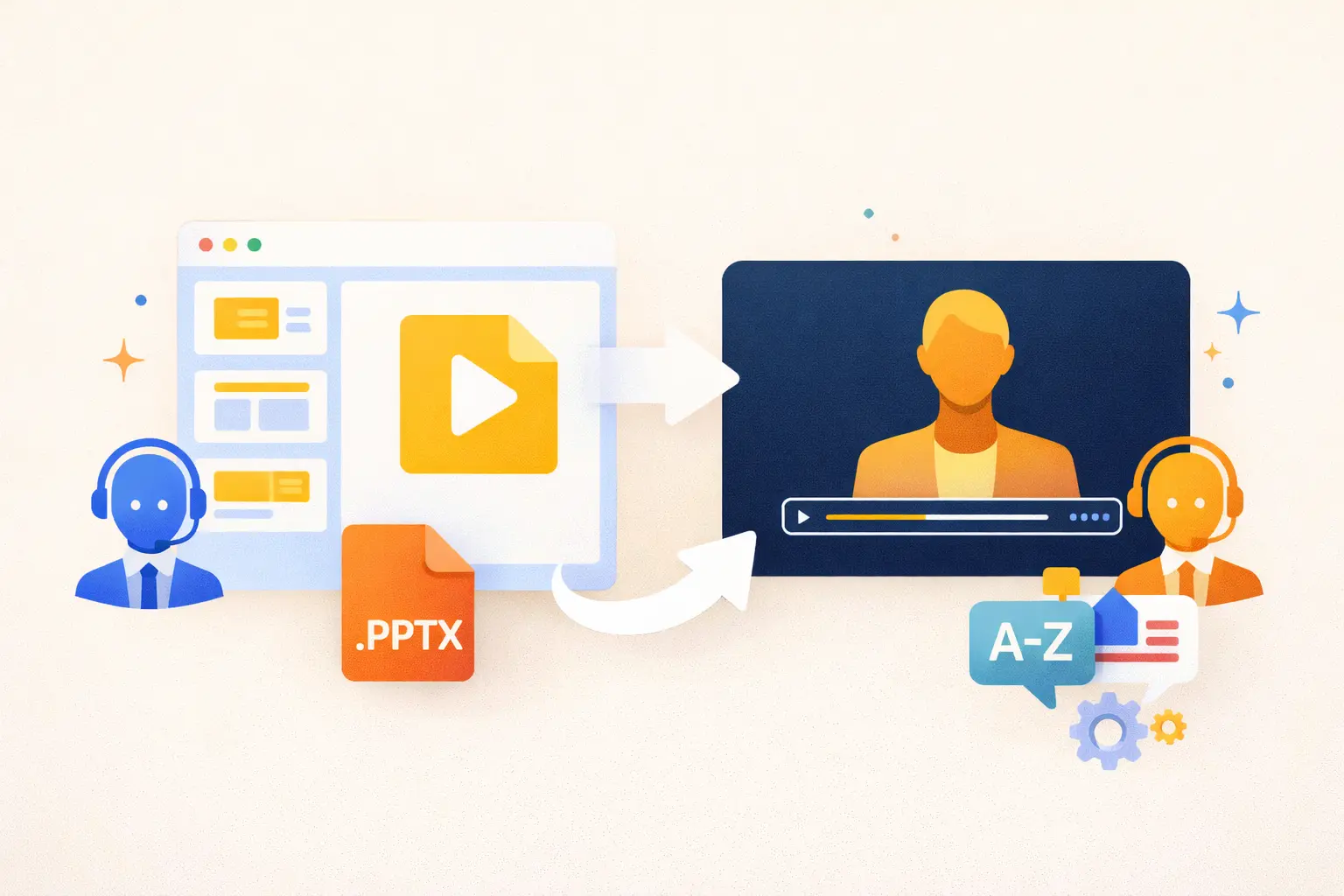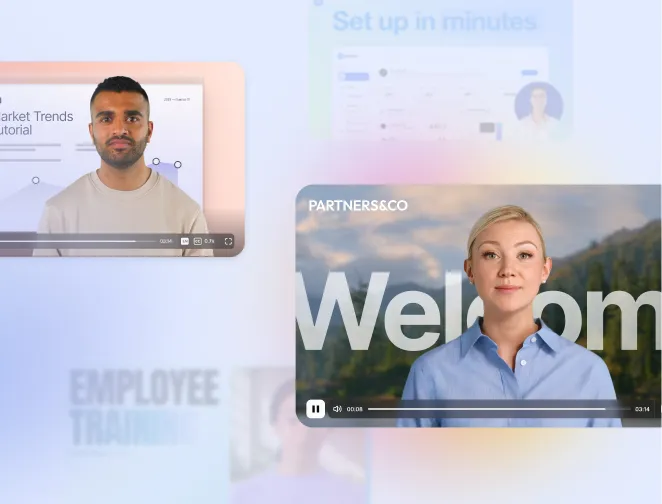
Create AI videos with 240+ avatars in 160+ languages.
Explainer videos are at the center of any good product marketing strategy.
They've been used to spin up Kickstarter empires, unpack complex B2B software, and even sell simple services such as food delivery.
This post will teach you how to make the explainer video possible, but also:
- When to use the explainer video format
- The 7-step video creation process
- How to speed up video production using specific software
Let's dive in 👇
What is an explainer video?
Explainer videos are short-form videos that explain a product or service to potential customers. An explainer video can sometimes be called a 'how-to video,' but their meanings differ slightly based on context:
- Explainer videos are typically promotional and explain the big picture of a product or service.
- How-to videos are more educational and get into the details of completing a task.
Explainer videos are an essential marketing strategy for most companies and are mainly featured on relevant landing pages throughout the website. However, it is also common to feature explainer videos on social media, crowdfunding pages, and even at online/offline events and conferences.
Think of your explainer video as a quick overview of the product you're trying to sell. You can create it using one of the following visual styles:
- Animated explainer video: A 2D or 3D animated explainer video, or even a whiteboard video, can create more memorable visuals and a more engaging experience.
- Live-action explainer video: Showing a real actor or a talking head in a professionally filmed video can help create a stronger emotional connection with the audience.
- Screencast explainer video: Sharing your screen while using a digital product is a great way to create an explainer in the product demo video category.
How to make an explainer video in 7 easy steps
When trying to understand how to create a great explainer video, the most powerful aspect to focus on is storytelling. Even a poorly filmed video with a great story can effectively sell your product or service. To get your storytelling skills started, it all starts with step 1, do your research.
Step 1: Do your research
Understanding who you're talking to, their pain points, and what they respond to can influence the style of your explainer video, messaging, and tone. This initial research should inform your choice between live-action videos, 2D/3D animated explainer videos, screencast or whiteboard video, etc.
To create an effective explainer video, it's also important to think about its purpose or goal. Here are some questions to help you define this:
- What's the key message, feeling, or knowledge you want your audience to walk away with?
- Will your video content focus on selling, educating, or inspiring?
- What action do you want viewers to take after watching your video?
Step 2: Choose a video type
Animated explainers, whether in 2D, 3D, or whiteboards, work best for more abstract ideas and intangible software or services. By contrast, live-action or talking-head explainer videos better connect with viewers and are more engaging.
The rest of these steps will create a blended talking head/product demo explainer video for demonstration purposes. If you'd like to follow along, you can try a free demo of the AI explainer video maker Synthesia.
Step 3: Write the script
An engaging script is just as important as the video visuals. Your video has to tell a compelling story to get the results you want from your audience.
Here's what you should include when writing your explainer video script to increase your chances of driving action:
- Pinpoint a problem your audience is facing
- Introduce your product/service as a solution/answer to it
- Keep it fun with humor (if it fits your brand)
- Feature a call to action
Step 4: Gather assets
You will need a different set of assets depending on your chosen explainer video type.
Screen recordings, recorded demonstrations of your products, animated shorts, images, stock footage, logos, and music should all be sourced at this stage.
Many video makers give you access to royalty-free images and audio, so check what your chosen software provides.
Keep all your assets organized in a dedicated folder, clearly labeled, and in an order that makes sense for your workflow. Sorting them in one place will make the production part much easier.
You can have your video created in as little as 10 minutes, especially if you start with a pre-made template.
Step 5: Create or film the video
This is the time to put your planning into practice by creating your video with the tool of your choice.
If you're using Synthesia, here's what to do:
- Choose a template that fits your video's theme.
- Select your desired language, accent, and tone.
- Paste your script.
- Customize the video with your desired images, shapes, on-screen text, brand assets, etc.
- You can add music tracks, sound effects, and other multimedia elements or use the built-in screen recorder to create a software walkthrough.
- Give it a polished final look with animated elements.
- Generate the explainer video.
The video below dives into the process in greater detail.
On the other hand, if your video requires live-action filming, you'll want to consider the production process. This will include:
- Developing a pre-production plan that includes a shot list or animatic.
- Gathering equipment such as cameras, lights, and props.
- Casting suitable actors (and/or voice actors if you intend on using narration).
- Renting out studio space or applying for location permits.
- Hiring a film crew and filming all the needed footage.
Step 6: Edit
This is the part where you make your idea truly come to life.
This step has largely been completed if you're using a video maker like Synthesia. All that's left to do is refine and revise your generated video. First, cut unnecessary information and add transitions if required. Then, if you haven't done so yet, add in your assets, like animations, sound effects, and music.
However, if you're filming a live-action video, editing is a more intensive process that requires editing software like Davinci Resolve. Check out this guide on video editing to understand the nitty-gritty involved in editing live-action footage.
Step 7: Promote the finished video
Now, it's time to show your audience the fruit of your labor.
You can add the video to your website's landing page, in a blog post explaining the product, in your newsletter, or on social media. You can even upload it on your YouTube channel or on any other video hosting platform.
The key is to pick a video platform or any other distribution channel where your audience is active. This way, you'll capture their attention and promote your content more effectively.
What makes a good explainer video?
Creating an impactful explainer video that captures attention and drives action is both an art and a science.
Over the years, explainer videos evolved from simple PowerPoint presentations in the '90s to the game-changing rustic animation by Dropbox in 2008, which famously gained 70,000 new users overnight, to the impressive video clips that crowd our feeds daily.
Industry experts have spent millions of hours researching what makes explainer videos truly engage and convert audiences. Below, you'll discover 9 characteristics that the best explainers seem to have in common. Keep them in mind whenever you're creating explainer videos.
1. One big problem is exposed from the start
The most compelling explainer videos begin by addressing a problem that deeply resonates with the target audience.
The PAS formula — Problem, Agitation, Solution — can effectively hook viewers. It taps into their immediate pains, making them more receptive to your solution.
This method speaks to our instinctual need to escape discomfort. When your product or service appears as the painkiller your audience is looking for, they will pay considerably more attention to what you say in the video.
2. A clear and concise script
A clear, concise, and persuasive script sets explainer videos for success.
But crafting a script for a 60 to 90 second video can take up to 16 hours. If you're going to spend that time, make sure your script follows the characteristics of the persuasive and actionable explainer videos out there:
- Simplify the complex ideas with metaphors, analogies, or visual puns.
- Use relatable language to avoid confusing your audience.
- Engage directly with the viewer, asking questions and writing in the second person to connect with the watchers.
3. Focus on benefits instead of features
All customers want is to see how you can improve their lives. That's why the best explainers focus on how a product or service changes the viewer's life. They "sell the sizzle, not the steak," as they say.
Benefits have more practical value and emotional appeal than mere technical features. So, whenever you're making an explainer video, use features to tell, but rely on benefits to sell.
4. Human faces
Human faces in videos and thumbnails have been proven to increase engagement and brand recall. Especially in animated explainer videos, incorporating human-like features can make the content more relatable and memorable, fostering a stronger connection with the viewer.
5. More visuals than narration
Videos are meant to show and make you feel things. They should do this even when you hit play without volume since up to 78% of viewers watch videos on mute.
These facts mean you have to prioritize visual storytelling. Whether through animated visuals, text captions, or silent live-action cues, your video should convey its message clearly, even without narration.
If you're going to use voiceovers, leverage text-to-speech technology. It can offer incredible versatility and inclusivity, generating flawless narration and automatic captions in almost any language.
6. Audience-optimized formatting
This formatting is more of a marketing nuance but is very important. Videos facilitate experiences, which means they're not just about what they show or how they make you feel but also about how they fit into the viewing platform.
While vertical videos may perform better on social media, traditional formats might be more suitable for website embedding. Understanding your audience's viewing habits is key to optimizing engagement.
7. Optimal length
Keeping explainer videos under two minutes ensures they are concise enough to maintain viewer engagement without sacrificing key information.
The explainer videos that have you take out your wallet and punch your credit card details don't tell a company's history. They simply convey that you can trust that company to solve your problem.
So, highlight how a company solves a specific problem and do it in the shortest possible time. Make every second add value to the viewer's understanding.
8. Just-enough editing
Too much editing can make your finished video look overly polished and less smooth than you'd wanted. Less is more when it comes to editing; the best explainer videos have this raw, natural look.
Drawing inspiration from Stephen King's "On Writing," you might want to approach script editing in three steps or drafts that focus on:
- Coherence
- Thematic consistency
- Clarity of purpose
With this streamlined approach to editing, you can prevent over-polishing and keep the narrative engaging and effective.
9. Just the right music track
When people hit the play button, they should have an experience that stimulates all their senses. Whether you want to create animated videos, live-action explainer videos, or hand-drawn whiteboard explainer videos, the right music should perfectly complement the visuals and not override the narration. Add music your audience resonates with, and that evokes your intended emotional response.
Ready to create explainer videos?
We hope this guide has helped you understand the creative process of producing good explainer videos. Now it's time to take action and start making your own explainer video.
And if the idea of creating videos in minutes, right in your web browser, using human-like AI avatars sounds intriguing, use this AI video generator to create an AI video for free.
About the author
Strategic Advisor
Kevin Alster
Kevin Alster is a Strategic Advisor at Synthesia, where he helps global enterprises apply generative AI to improve learning, communication, and organizational performance. His work focuses on translating emerging technology into practical business solutions that scale.He brings over a decade of experience in education, learning design, and media innovation, having developed enterprise programs for organizations such as General Assembly, The School of The New York Times, and Sotheby’s Institute of Art. Kevin combines creative thinking with structured problem-solving to help companies build the capabilities they need to adapt and grow.












